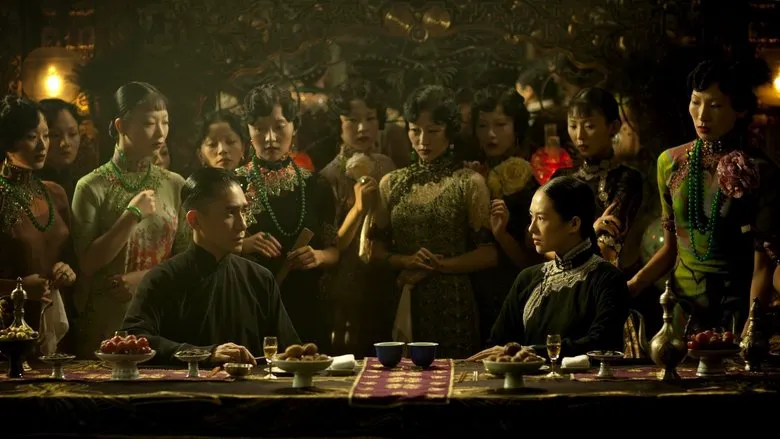The Grandmaster: A Poetic Martial Arts Masterpiece
Wong Kar-wai’s “The Grandmaster” intricately weaves a tale around the life of Ip Man, the iconic kung fu master famed as Bruce Lee’s mentor. The film transports us to 1930s Foshan, where Ip Man’s martial prowess is tested against formidable Northern fighters, cementing his legendary status. As tumultuous times force him to seek refuge in Hong Kong, leaving behind his family, the narrative intertwines with his profound, yet unfulfilled, romance with Gong Er, a Northern grandmaster’s daughter.
 Tony Leung as Ip Man
Tony Leung as Ip Man
Before embodying the role of Ip Man, Tony Leung dedicated himself to rigorous martial arts training, committing four hours daily for several years. This dedication translates onto the screen, adding depth and authenticity to his performance.
A Wong Kar-wai Film Through and Through
Despite achieving commercial success in Asia, “The Grandmaster” remains a quintessential Wong Kar-wai creation. It’s a film where the director’s artistic vision takes center stage despite being a biopic of someone with other movies about him. Wong transforms Ip Man’s biography into a dreamlike experience, blurring the lines between reality and fantasy. So much so, that even experts would struggle to recognize the protagonist by name.

“The Grandmaster,” a film marked by its unique artistry, was chosen to inaugurate the esteemed Berlin International Film Festival.
The Language of Ellipses
While the film adheres to the fundamental facts of Ip Man’s life, Wong’s masterful use of ellipses and omissions transforms the coherent narrative into a series of fragmented memories. Tony Leung’s portrayal, marked by his stylish demeanor and signature white hat, hints at the historical figure, but Wong’s directorial choices elevate “The Grandmaster” beyond a straightforward biography. His unique directorial vision crafts a dreamlike state and poetic exploration, inviting the audience to experience a world filtered through Wong’s unique lens.
 Gong Er in a moment of quiet reflection
Gong Er in a moment of quiet reflection
The Intersection of Love, Loss, and a Changing World
“The Grandmaster” chronicles the transition of these figures from a timeless, mythical China to the stark realities of the 20th century - marked by its cruelty, indifference, and moral ambiguities. Gong Er’s character stands out with a fierce, and unrelenting spirit. Her love for Ip Man creates conflict, as it is one directed toward a married man. Wong gives Gong Er a prominent position in the film, reflecting the narrative through a lens of unrequited love and deep respect. Gong Er embodies the imperfection and vulnerability of the world, a stark contrast to Ip Man’s unwavering strength.
Transcending Time Through Cinema
Wong Kar-wai describes “The Grandmaster” as a beautiful dream; a meditation on the futility of stopping the passage of time. Wong uses his signature slow-motion techniques to emphasize the illusion of control. The imagery of the train platform where a train inexplicably slows emphasizes this idea that the characters are waiting in a timeless space. Though sadness is known from the beginning, the film shows that with longing can be experienced. What is the longing directed at? Is it a love, a grandmaster, a bygone era, or the essence of martial arts tradition?
Could the film be about Bruce Lee, immortalized after death? A boy forever frozen in time at a photo shoot, amongst grown men? Maybe he represents the question asked by the film maker.